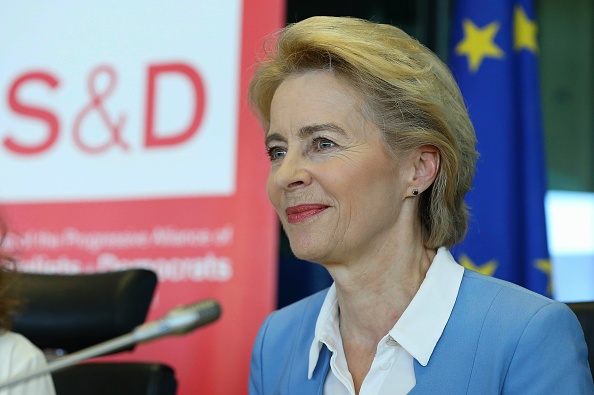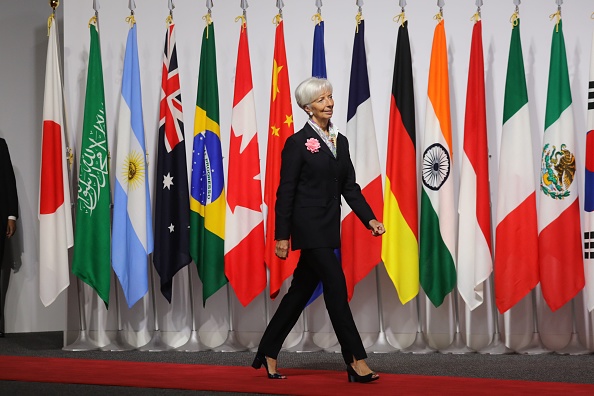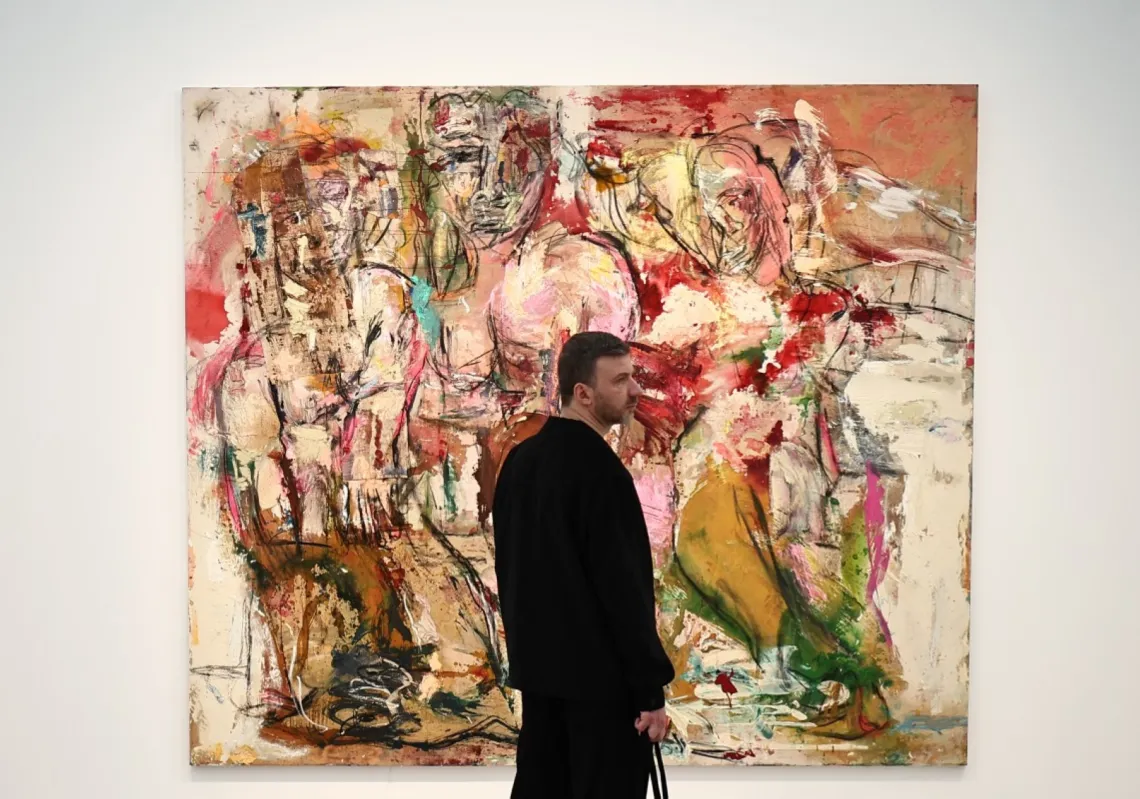As the winning party, the EPP will have a nominee within their ranks for the presidency of the European Commission. While European heads of state and government are technically the ones who make the nomination, they have to take into account the results of the parliamentary elections and the party that won the majority seats. Ursula von der Leyen, the current German Defense Minister and longtime ally of Angela Merkel, has been nominated to replace Jean-Claude Junker as the new European Commission president. Meanwhile, current International Monetary Fund Managing Director, Christine Lagarde, has been nominated to become the next head of the European Central Bank. Both candidates will need the approval of the European Parliament before proceeding to their new posts, but should they succeed they will become the first women to become European Commission president and European Central Bank president, respectively. Both candidates will face the challenge of gaining approval of the European parliament where MEPs from the Eurosceptic camps, Greens and leftists will likely vote down candidates endorsed by the EPP. Furthermore, if both women secure their posts then each will have an uphill battle of her own; von der Leyen is a staunch federalist who has openly called for a “united states of Europe”, as a result Eurosceptic elements within the EU will be sure to make her job as difficult as possible. Lagarde, on the other hand, has never held a central bank post before and as a result many of the skills required in the job description will be new to her. She will also need to find ways of keeping the Eurozone united as countries such as Greece and Italy have repeatedly shown hinted at abandoning the monetary union.
URSULA VON DER LEYEN: MERKEL’S MOST TRUSTED ALLY
Ursula von der Leyen is a long-time ally of German Chancellor Angela Markel as she is the only person to serve in all her cabinets. Before becoming Defense Minister, Von der Leyen, served as Minister of Labor and Social Affairs and Minister of Family Affairs, Senior Citizens, Women and Youth and Health Minister, respectively. While she has been a longtime member of the center right Christian Democratic Union (CDU), many of her stances and leanings have been leftist. For instance, as Minister of Family Affairs she introduced a parental assistance program ("Elterngeld") which expanded government spending on childcare and she also implemented parental leave for fathers. These progressive policies were opposed by traditional conservative elements within her party and the latter decision was even mocked by a Bavarian politician who said men did not need a “diaper-changing traineeship.” Von der Leyen is also a critic of the gender pay gap, and has advocated for equal pay between women and men who do the same job.
As Defense minister, she has made Germany more involved in conflict zones, for example she expanded the presence of the Bundeswehr (Germany’s armed forces) in Northern Iraq, where 150 German troops have been training Kurdish forces fighting against IS. After a meeting with Iraq’s Prime Minister in 2018, she said that Germany needs to be more involved to “meet the needs of Iraq”. Furthermore, she also provided Saudi Arabia with arms, an uncommon practice in German foreign policy which has largely avoided providing weaponry to conflict zones.

Von der Leyen is also pro-migration and has supported Merkel’s decision to welcome refugees into Germany. She has also gone as far as hosting a young Syrian refugee in her home and helped him to find an apprenticeship. Additionally, back in she criticized Hungary for using tear gas against asylum seekers.
On the European sphere, she is a European federalist who has called for further European integration. In a 2011 interview for German publication, Der Spiegel, she said that her “aim is the United States of Europe – modelled on federal states like Switzerland, Germany and the U.S.” Perhaps even more controversial is her advocacy for a unified European army, it should be noted however that she is not in favor of a centralized “EU army”, but rather an “army of Europeans” composed of soldiers who are still loyal to their respective countries, something more akin to NATO. She also stated that this proposed idea would not be a replacement to NATO. She thinks the EU must be more involved in foreign policy matters and as such called for an end to the requirement of unanimity between all EU member states before making a decision. Like most of her political partners, she is not thrilled with Britain’s decision to leave the European Union, but has not called for a second referendum stating that the British people voted for a Brexit. Like Juncker, she said that the EU would not reopen negotiations with the UK favoring the deal that Theresa May tried to get through her own parliament, but she also said that she wouldn’t be opposed to extending the Brexit deadline beyond October 31, 2019.
She hasn’t spoken much on environmental issues as a German minister, but since her nomination she promised that she would seek an increase to the EU’s 2030 cut emissions target from 40 percent to 50 percent. She also said that she would support a zero emissions target by 2050.
It is no surprise that her European integration stances have made her unpopular among Eurosceptic, who view the EU as a penetrative force infringing on national sovereignty. While the lack of support from populists was expected, liberal and green MEPs have also expressed their disapproval of von der Leyen. The nominee recently met with Green MEPs to secure their support, but her efforts seem to be fruitless as many of them later said they would not vote for her. Ska Keller, co-president of the European Greens told Politico: “We did not hear any concrete proposal, be it on rule of law or on climate, we have been elected on a mandate for change and we don't see how change will be possible with this candidate.”
The European United Left/Nordic Green Left (GUE/NGL) also had gripes with von der Leyen, one of their MEPs, Martin Schirdewan also spoke to Politico expressing concerns that she will allow further neoliberal policies, which in his view caused the European economic crisis. He was also not thrilled with her support for a unified army and her previous support for military intervention. In short, it seems that von der Leyen’s confirmation will not be a clear cut process.
CHRISTINE LAGARDE: AN APOLITICAL NOMINATION?
While Lagarde’s nomination is not nearly as controversial as von der Leyen’s, there are still many questions raised over her candidacy. The position of head of the ECB has always been held by a technocrat rather than a politician, while Lagarde’s current position is Managing Director of the IMF, she has previously held ministerial positions in France. Furthermore, the nominated vice president of the ECB is former Spanish finance minister Luis de Guindos. It is feared that the nominations of two former politicians would weaken the apolitical characteristic of the ECB. Lagarde also does not have any experience running a central bank; as such there is reason to think that she might not be the best person for the job.

Her speeches to the IMF indicate that she favors dovish economic policies, meaning that she would try to keep interest rates low, but as interest rates are already at record lows, it is unclear how she might pursue her policies. As she is likely to continue the policies set by current ECB president, Mario Draghi, she probably can’t count in leftists to support her.
As head of the ECB she would also need to prevent the Eurozone from falling apart, and a recent article in the Guardian stated that she could use her political connections to convince governments to implement tax and spending policies that would stimulate the Eurozone economy. She will also face challenges from growing Eurosceptic movements, as some, such as those in Italy and Greece, have called for leaving the Eurozone.
If both candidates are successfully confirmed, they would be breaking a glass ceiling; however such an accomplishment would only be the easiest part of their jobs. During their tenure, both women will have to battle against the forces of Eurosceptism, populism and last but not least growing dissatisfaction from the citizens living within the European Union









